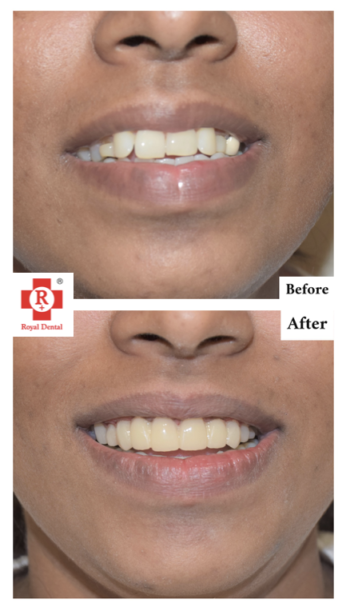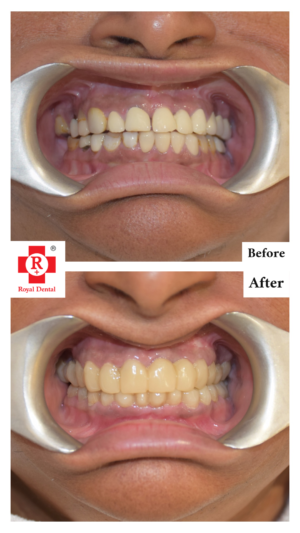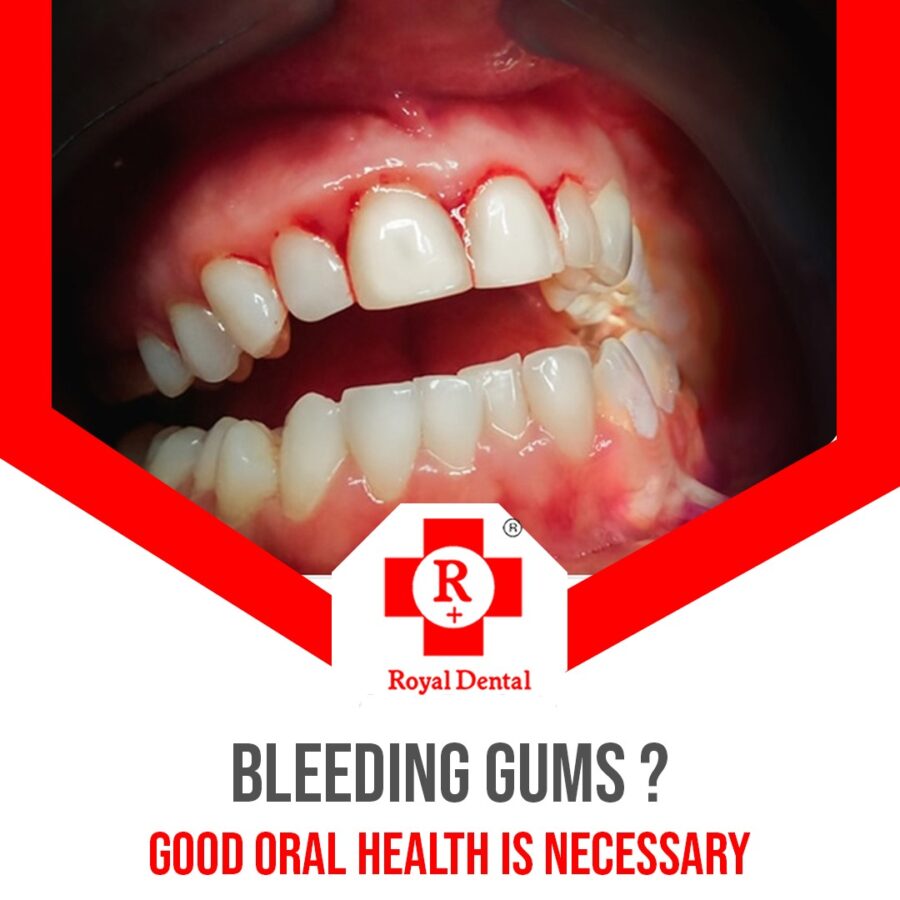There are efficient ways to manage gum bleeding after a root canal, so don’t panic if it happens. Knowing how to stop bleeding after a procedure is essential for a speedy recovery, regardless of whether you’ve recently had it done or are scheduled for one. We’ll go into helpful hints and techniques in this guide to assist you in resolving this typical post-treatment problem. We will discuss straightforward yet efficient techniques to stop bleeding, like applying pressure, using gauze, and avoiding certain activities that can make the situation worse. You’ll be prepared to handle bleeding after your root canal like a pro with our simple-to-follow tips.
What causes Bleeding after a Root Canal?
A root canal procedure is a dental treatment aimed at saving a severely damaged or infected tooth. It involves removing the infected or damaged pulp from the inside of the tooth, cleaning and disinfecting the root canals, and then filling and sealing the space. The dental pulp, which contains blood vessels and nerves, is removed during this process to eliminate infection and alleviate pain.
Common Factors Leading to Post-Procedure Bleeding
- Tissue Manipulation: During the root canal procedure, the dentist manipulates delicate tissues within the tooth, including the removal of the infected pulp and shaping of the root canals. This manipulation can cause minor trauma to the surrounding tissues, leading to bleeding.
- Disruption of Blood Supply: The removal of the dental pulp, which contains blood vessels that nourish the tooth, disrupts the normal blood supply to the tooth. This temporary disruption can result in bleeding after the procedure.
- Inflammatory Response: The body’s natural inflammatory response to the root canal procedure can also contribute to post-operative bleeding. Inflammation is a normal part of the healing process, but it can cause increased blood flow to the affected area, leading to bleeding.
Importance of Proper Post-Operative Care
Proper post-operative care plays a crucial role in minimizing bleeding and promoting healing after a root canal procedure. Following your dentist’s instructions carefully can help prevent complications and ensure a smooth recovery. Key aspects of post-operative care include:



- Maintaining Good Oral Hygiene: Brushing and flossing gently around the treated tooth to keep the area clean and free from bacteria.
- Avoiding Irritants: Avoid hot or spicy foods, as well as vigorous rinsing or chewing on the treated side, to prevent irritation and further trauma to the tissues.
- Taking Prescribed Medications: Take any prescribed medications, such as pain relievers or antibiotics, as directed by your dentist to manage discomfort and prevent infection.
- Attending Follow-Up Appointments: Scheduling and attending follow-up appointments with your dentist to monitor healing progress and address any concerns or complications promptly.
Signs and Symptoms of Bleeding after Root Canal
| Normal Bleeding | Excessive Bleeding |
|---|---|
| Bleeding is common following a root canal treatment, especially in the early post-treatment period. During the first several hours following the surgery, this bleeding, which is usually mild, should progressively stop. It can show up as a little discoloration or seeping of saliva and is frequently treated at home with easy-to-follow instructions. | After a root canal, excessive bleeding could be a sign of an issue that needs to be addressed. It’s critical to get dental care right away if bleeding continues over the first day or is severe. Overdosing can manifest as ongoing bleeding or blood clots in the mouth, which can make it difficult to manage with conventional at-home care techniques. |
Associated Discomfort with Bleeding after Root Canal
After a root canal, it’s typical to feel a little sensitive or uncomfortable in the treated tooth’s surrounding tissues. Usually, as the tissues recover, this discomfort goes away. However strong or ongoing pain, particularly in the presence of bleeding, could be a sign of a problem such as an infection or poor healing.
Following a root canal, the body’s natural healing response often results in swelling and inflammation surrounding the treated tooth. However severe swelling or bleeding, together with edema, could indicate a problem that has to be addressed by your dentist.
Persistent bleeding during a root canal can occasionally cause blood and other fluids to build up in the mouth, giving off an unpleasant taste or odor. Your dentist should examine this since it may indicate an infection or insufficient clot development.
Immediate steps to stop Bleeding After Root Canal
Quick Response Tips for Patients
Using a sterile, clean gauze pad, apply firm yet moderate pressure to the bleeding region. This aids in clot formation and stops bleeding. As the bleeding stops, change the gauze as necessary. Reducing swelling and discomfort around the treated tooth with an ice pack or cold compress can help stop bleeding. Apply the ice pack for 15 to 20 minutes at a time, covering it with a cloth to keep it from coming into contact with your skin.
Warm meals and liquids can make bleeding worse by boosting blood flow to the site of injury and preventing the development of clots. To reduce inflammation and encourage healing, limit your intake of cold or room-temperature meals and beverages.
Role of Proper Wound Care
To help maintain dental hygiene and prevent infection, Dr. Chirag Chamria advises using antiseptic treatments like chlorhexidine mouthwash after a root canal procedure. To keep the surgery site clean and lower the chance of problems, rinse using the suggested solution as instructed by your dentist.

Wound care after a root canal is essential to promote healing and prevent complications. You will receive personalized post-operative care instructions from your dentist based on your unique requirements. It is imperative that you strictly adhere to these guidelines, which include taking prescribed drugs, abstaining from specific foods and activities, and making follow-up appointments. Following your dentist’s advice will help you heal more quickly and reduce your chance of bleeding and other post-operative problems.
Gum Bleeding after Root Canal
Even with stringent infection control measures in place, there is always a chance that bacteria will find their way into the gum tissues during root canal therapy. Inflammation and bleeding in the surrounding gum tissues may result from inadequate bacterial management.

Gum bleeding during a root canal may be more common in patients with pre-existing gum conditions like gingivitis or periodontitis. These disorders make gum tissues weaker and impair their capacity to recover, which raises the possibility of bleeding after dental operations.
Dr. Chirag Chamria’s Specialized approach to Gum Bleeding
To determine the extent of gum bleeding and find any underlying causes of the issue, Dr. Chamria performs a comprehensive examination. Dr. Chamria creates a customized treatment plan to address the root cause of gum bleeding based on the results of the assessment.
This could entail taking extra precautions against infection, such as using antibiotics or targeted gum therapy. Dr. Chamria teaches her patients the importance of maintaining proper dental hygiene as well as ways to prevent gum disease and its consequences. Dr. Chamria helps patients take an active role in maintaining their dental health and averting future problems by arming them with information and direction.
Conclusion
In conclusion, it’s critical to distinguish between normal and severe bleeding following a root canal and to act quickly to stop it. For the best chance of recovery, recurrent bleeding should be treated under professional supervision. With individualized treatment plans catered to each patient’s specific requirements, Dr. Chirag Chamria’s experience guarantees positive post-root canal results. Put your faith in Dr. Chamria’s ability and dedication to confidently handle any difficulties. Recall that prompt action and appropriate maintenance result in quicker healing and better oral health.
All rights reserved by Royal Dental Implants Pvt Ltd, Issued in Public Interest






